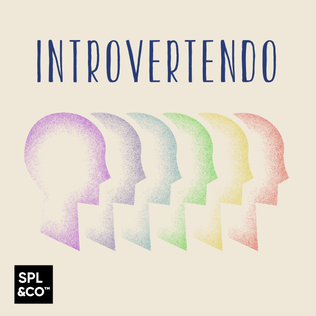
Diagnoses of autism have become more frequent since the 1980s, which has led to various controversies about both the cause of autism and the nature of the diagnoses themselves. Whether autism has mainly a genetic or developmental cause, and the degree of coincidence between autism and intellectual disability, are all matters of current scientific controversy as well as inquiry. There is also more sociopolitical debate as to whether autism should be considered a disability on its own.

Neurodiversity is a framework for understanding human brain function that recognizes the diversity of human cognition as a biological fact. The neurodiversity paradigm argues that diversity in human cognition is normal and that some conditions classified as mental disorders are differences and disabilities that are not necessarily pathological.

The social model of disability identifies systemic barriers, derogatory attitudes, and social exclusion, which make it difficult or impossible for disabled people to attain their valued functionings. The social model of disability diverges from the dominant medical model of disability, which is a functional analysis of the body as a machine to be fixed in order to conform with normative values. As the medical model of disability carries with it a negative connotation, with negative labels associated with disabled people. The social model of disability seeks to challenge power imbalances within society between differently-abled people and seeks to redefine what disability means as an diverse expression of human life. While physical, sensory, intellectual, or psychological variations may result in individual functional differences, these do not necessarily have to lead to disability unless society fails to take account of and include people intentionally with respect to their individual needs. The origin of the approach can be traced to the 1960s, and the specific term emerged from the United Kingdom in the 1980s.

The autism rights movement, also known as the autistic acceptance movement, is a social movement allied with disability rights that emphasizes a neurodiversity paradigm, viewing autism as a disability with variations in the human brain rather than as a disease to be cured. The movement advocates for several goals, including greater acceptance of autistic traits and behaviors; reforms of services - i.e. services that focus on improving quality of life and well-being instead of suppression and masking of autistic traits that are adaptive or not harmful or imitations of social behaviors of allistic (non-autistic) peers ; the creation of social networks and events that allow autistic people to socialize on their own terms; and the recognition of the autistic community as a minority group.

In psychology and sociology, masking is the process in which an individual camouflages their natural personality or behavior to conform to social pressures, abuse, or harassment. Masking can be strongly influenced by environmental factors such as authoritarian parents, rejection, and emotional, physical, or sexual abuse. Masking can be a behavior individuals adopt subconsciously as coping mechanisms or a trauma response, or it can be a conscious behavior an individual adopts to fit in within perceived societal norms. Masking is interconnected with maintaining performative behavior within social structures and cultures.
Self-advocacy is the act of speaking up for oneself and one's interests. It is used as a name for civil rights movements and mutual aid networks for people with intellectual and developmental disabilities. The term arose in the broader civil rights movements of the 1960s and 1970s, and is part of the disability rights movement. Today there are self-advocacy organizations across the world.

Mad Pride is a mass movement of current and former users of mental health services, as well as those who have never used mental health services but are aligned with the Mad Pride framework. The movement advocates that individuals with mental illness should be proud of their 'mad' identity.
The Autistic Self Advocacy Network (ASAN) is an American 501(c)(3) nonprofit advocacy organization run by and for individuals on the autism spectrum. ASAN advocates for the inclusion of autistic people in decisions that affect them, including: legislation, depiction in the media, and disability services.
Autism, formally called autism spectrum disorder (ASD) or autism spectrum condition (ASC), is a neurodevelopmental disorder marked by deficits in reciprocal social communication and the presence of restricted and repetitive patterns of behavior. Other common signs include difficulties with social interaction, verbal and nonverbal communication, along with perseverative interests, stereotypic body movements, rigid routines, and hyper- or hyporeactivity to sensory input. Autism is clinically regarded as a spectrum disorder, meaning that it can manifest very differently in each person. For example, some are nonspeaking, while others have proficient spoken language. Because of this, there is wide variation in the support needs of people across the autism spectrum.
Gunilla Gerland is a Swedish author and lecturer on the topic of autism. Her written works include Secrets to Success for Professionals in the Autism Field: An Insider's Guide to Understanding the Autism Spectrum, the Environment and Your Role and her autobiography A Real Person: Life on the Outside.
The history of autism spans over a century; autism has been subject to varying treatments, being pathologized or being viewed as a beneficial part of human neurodiversity. The understanding of autism has been shaped by cultural, scientific, and societal factors, and its perception and treatment change over time as scientific understanding of autism develops.
Discrimination against autistic people is the discrimination, persecution, and oppression that autistic people have been subjected to. Discrimination against autistic people is a form of ableism.
Mad Studies is a field of scholarship, theory, and activism about the lived experiences, history, cultures, and politics about people who may identify as mad, mentally ill, psychiatric survivors, consumers, service users, patients, neurodivergent, and disabled. Mad Studies originated from consumer/survivor movements organized in Canada, the United States, the United Kingdom, Australia, and in other parts of the world. The methods for inquiry draw from a number of academic disciplines such as women's studies, critical race studies, indigenous epistemologies, queer studies, psychological anthropology, and ethnography. This field shares theoretical similarities to critical disability studies, psychopolitics, and critical social theory. The academic movement formed, in part, as a response to recovery movements, which many mad studies scholars see as being "co-opted" by mental health systems. In 2021 the first academic journal of Mad Studies, The International Journal of Mad Studies, was launched.

Introvertendo, occasionally credited as Introvertendo - Autismo por Autistas, was a Brazilian podcast made between 2018 and 2023. With content about autism, it gained notoriety for being the first podcast made by autistic people in Brazil.
Autistic masking, also referred to as camouflaging or neurodivergent masking, is the conscious or subconscious suppression of autistic behaviors and compensation of difficulties in social interaction by autistic people with the goal of being perceived as neurotypical. Masking is a learned coping strategy that can be successful from the perspective of autistic people, but can also lead to adverse mental health outcomes.

The theory of the double empathy problem is a psychological and sociological theory first coined in 2012 by Damian Milton, an autistic autism researcher. This theory proposes that many of the difficulties autistic individuals face when socializing with non-autistic individuals are due, in part, to a lack of mutual understanding between the two groups, meaning that most autistic people struggle to understand and empathize with non-autistic people, whereas most non-autistic people also struggle to understand and empathize with autistic people. This lack of understanding may stem from bidirectional differences in communication style, social-cognitive characteristics, and experiences between autistic and non-autistic individuals, but not necessarily an inherent deficiency. Recent studies have shown that most autistic individuals are able to socialize, communicate effectively, empathize well, and display social reciprocity with most other autistic individuals. This theory and subsequent findings challenge the commonly held belief that the social skills of autistic individuals are inherently impaired, as well as the theory of "mind-blindness" proposed by prominent autism researcher Simon Baron-Cohen in the mid-1980s, which suggested that empathy and theory of mind are universally impaired in autistic individuals.

Judy Singer is an Australian sociologist, known for helping to popularise the term neurodiversity.
Nick Walker is an American scholar, author, webcomic creator, and aikido teacher, known for coining the term neuroqueer, establishing the foundations of neuroqueer theory, and contributing to the development of the neurodiversity paradigm. She is a professor at California Institute of Integral Studies (CIIS).
Kassiane A. Asasumasu is an American autism rights activist who is credited for coining several terms related to the Neurodiversity Movement, including caregiver benevolence (2014), neurodivergent, and neurodivergence (2000). As stated in the text Neurodiversity for Dummies, "Asasumasu's work set the stage for a broader understanding and acceptance of neurological differences", which "continue[s] to be shared, shaped and formed by all sorts of people who recogniz[e] that our world should be accepting, inclusive, and accommodating of people regardless of their neurotype".

Autism in Brazil has had a number of manifestations since the 20th century. It was introduced through child psychiatry with the predominant influence of psychoanalysis in medical care in the mid-1950s. The development of a community based on autism was late, with the founding of the Associação de Amigos do Autista (AMA) in 1983. Since then, autism has become a topic of interest for family members, health professionals and autistic people with the predominance of a neurobiological view of the diagnosis.









